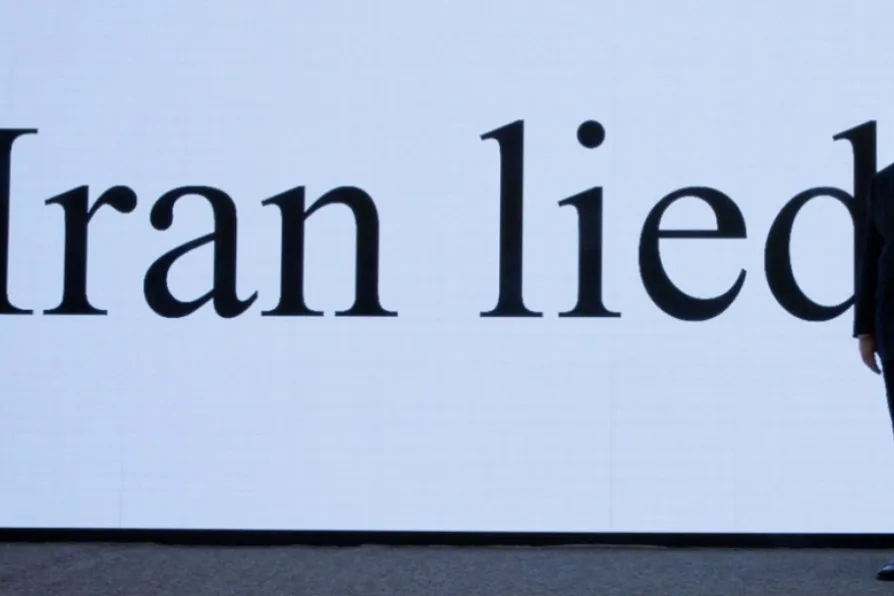
 Israeli Prime Minister Benjamin Netanyahu presents a press conference in Tel Aviv, Israel today
Israeli Prime Minister Benjamin Netanyahu presents a press conference in Tel Aviv, Israel today
UNITED STATES approval of initial reconciliation moves between the two Korean states should not blind us to the reality that President Donald Trump remains a threat to peace.
Trump’s enthusiastic welcome for Israeli Prime Minister Benjamin Netanyahu’s bizarre “Iran Lied” press conference confirms the danger that they both pose to the people of the Middle East and central Asia.
Not only would Trump and Netanyahu not recognise the truth if it jumped up and sank its teeth into their backsides but the Israeli leader is constantly on the lookout for dead cats to throw onstage to divert attention away from the many corruption allegations he faces.

While Trump praises the ‘successful’ attack on Iranian nuclear sites, the question arises as to the real motives behind this escalation. MARC VANDEPITTE explores the issues

In part one of two articles, STEVE BISHOP exposes blatant lies of the warmongers who demand ‘unconditional surrender’ from Iran using the excuse of nuclear weapons, when it is Israel that blatantly disregards international law












